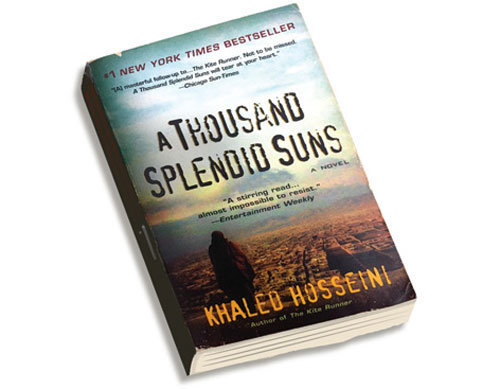‘A Thousand Splendid Suns’
‘A Thousand Splendid Suns’
Posted August. 25, 2021 07:35,
Updated August. 25, 2021 07:35

“I can't believe I'm leaving Kabul. I went to school here, got my first job here, became a father in this town,” he said and recited a poem. “One could not count the moons that shimmer on her roofs, Or the thousand splendid suns that hide behind her walls.” The poem about the beauty of Kabul was written by 17th-century Persian poet Saib-e-Tabrizi. He cried without making a sound as he used to know the whole poem and all he can remember now is two lines. He decided to leave Kabul for Pakistan in the fear that he might lose his daughter after losing two sons in battlegrounds. On the morning of his departure, a bomb blasted their home killing his wife and him and only leaving his daughter alive.
Khaled Hosseini’s novel “A Thousand Splendid Suns” features the orphan girl and a lady with a difficult life. The novel focuses on the challenging life, tears, and humanity of the two women, rather than brutal wars or politics. The title, “A Thousand Splendid Suns,” symbolizes the inner self of Afghan women who survived wars, violence, and madness.
As the Taliban took control of Afghanistan, Hosseini’s novels are once again getting attention. However, he asks people to not think of him as a representative of the country. He humbly confesses that his political view is limited as he sought asylum in the U.S. in 1980 even though he was born in Kabul. Instead, he urges readers to see humans, not politics, in his novels. He also pleads to the world to not focus on the negative images of Afghanistan featured on TV, such as the Taliban, terrorism, fundamentalism, drugs, violence against women, and the chaotic Kabul Airport, and to remember that it is a beautiful country where lovely, humble, friendly, and attractive people live. He hopes people could see a splendid sun inside Afghan people who have endured the violence and madness of wars and will continue to do so.






![[단독]“권성동, ‘王’자 노리개 등 장식 상자 2개로 1억 받았다”](https://dimg.donga.com/c/138/175/90/1/wps/NEWS/IMAGE/2026/01/22/133211754.1.jpg)
